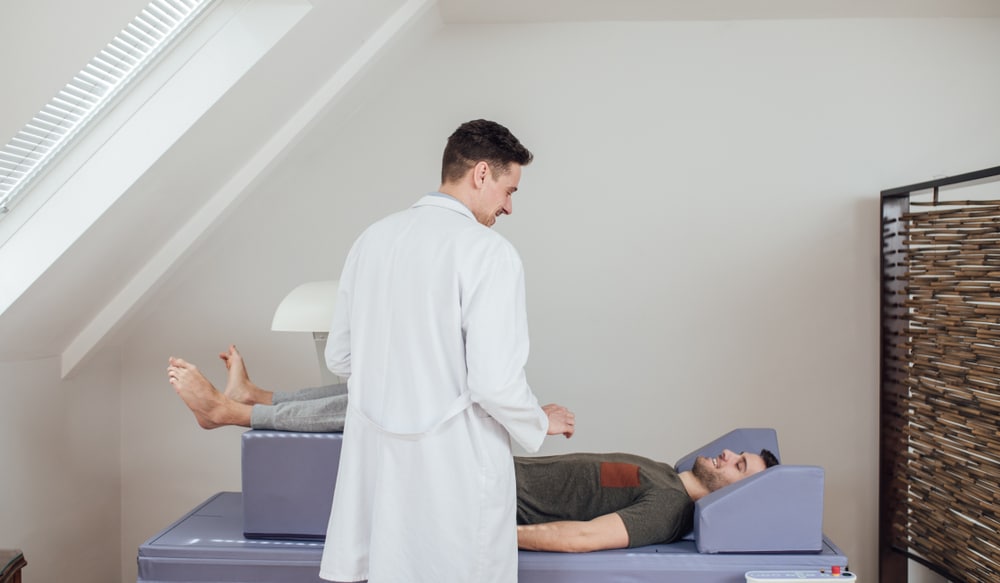Have you ever wondered what’s happening inside your body, beneath the surface of your skin, and how your bones and body composition contribute to your overall health? One key to unlocking this mystery is the DEXA scan, a sophisticated tool that offers a peek into our internal health in once unimaginable ways. But what exactly is a DEXA scan, and how can it illuminate aspects of your health that remain unseen to the naked eye? Let’s dive deeper into the science behind DEXA scans, unraveling how it works and why it’s a key component in our diagnostic arsenal at Meliora Integrative Medicine in Evanston, IL.
What Is The Significance of Bone Density in Your Health?
Bone density is a critical indicator of bone health and overall well-being. It reflects the strength and solidity of bones, determining their ability to withstand stress and resist fractures. High bone density signifies strong bones, which are less prone to breaks and fractures, a common issue as people age, particularly in conditions like osteoporosis.
Low bone density, conversely, signals a higher risk of fractures, making it essential to identify and address early through lifestyle changes, dietary adjustments, or medical interventions. Consequently, maintaining optimal bone density is fundamental for physical health, enabling mobility and support and enhancing quality of life by preventing injuries that can lead to disability and reduce independence.
What Are DEXA Scans?
A DEXA scan, or dual-energy X-ray absorptiometry scan, stands at the forefront of bone density testing. Unlike traditional X-rays, a DEXA scan utilizes two X-ray beams at different energy levels to accurately measure bone density. By providing a detailed snapshot of bone health, DEXA body scans play a crucial role in diagnosing conditions like osteoporosis and osteopenia early on.
How Do DEXA Scans Work?
DEXA scans utilize low-dose X-rays to measure bone mineral density (BMD). During the scan, a machine sends X-ray beams with two different energy levels through the bones being tested. Soft tissue absorbs one energy beam, while bone absorbs the other. We can determine bone density by subtracting the soft tissue amount from the total.
Typically, the scan focuses on high-risk fracture areas such as the hips and spine. The results are compared with the BMD of a healthy young adult (T-score) and individuals of the same age (Z-score), measuring where one’s bone density falls on a spectrum from healthy to weak.
Why Are DEXA Scans Beneficial to You?
High Sensitivity
DEXA scans stand out for their exceptional sensitivity, which can detect minute changes in bone mineral density. This sensitivity is crucial for spotting the earliest signs of bone loss, allowing for prompt interventions. This level of detail also supports the development of personalized treatment plans.
Early Diagnosis
The accuracy of a DEXA bone density test is instrumental in the early diagnosis of osteoporosis, a condition that often goes unnoticed until a fracture occurs. Early detection facilitates early treatment, significantly reducing the risk of fractures. It also encourages a proactive approach to lifestyle adjustments and nutritional strategies.
Accurate Fracture Risk Assessment
The precision of DEXA scans enables us to accurately assess an individual’s fracture risk. This critical information guides treatment decisions and preventive strategies to safeguard bone health. Understanding this risk can also motivate patients to engage more actively in their bone health management.
Low Radiation Exposure
DEXA scans use low radiation levels, making them safer than other diagnostic X-ray procedures. This safety profile permits repeated scans without significant health risks, ensuring patient safety remains a top priority.
Quick Procedure
A DEXA scan is typically completed in 10 to 20 minutes, with actual radiation exposure lasting only a fraction of this time. This efficiency reduces patient discomfort and inconvenience.
Non-invasive and Painless
With the patient lying down, DEXA scans are non-invasive and painless, eliminating the need for injections or incisions. This contributes to a more comfortable and anxiety-free experience for the patient.
No Special Preparation
DEXA scans require no prior preparation, such as fasting or ingesting contrast agents. This convenience allows patients to continue with their daily activities without interruption.
Regular Monitoring
The minimal radiation dose from DEXA scans allows for frequent monitoring of bone density changes. This regular monitoring is critical to adjusting treatment plans and interventions as necessary.
Tailored Risk Assessment
DEXA scans enable doctors to compare a patient’s bone density to that of healthy young adults (T-score) and age-matched peers (Z-score), allowing for a personalized risk assessment. This approach enhances monitoring and treatment effectiveness, fostering a more individualized approach to patient care.
Monitoring Over Time
Tracking bone density changes over time is vital for assessing treatment efficacy. Treatment adjustments can be made based on precise, data-driven insights, ensuring optimal patient outcomes. This longitudinal tracking also provides valuable data for ongoing research and understanding of bone health trends.
Unlock Your Health Potential With DEXA Scans at Meliora Integrative Medicine in Evanston, IL
At Meliora Integrative Medicine, we understand the importance of delving deep into the aspects of health that aren’t always visible to the naked eye. A DEXA scan offers more than just a glimpse into your bone density and body composition; it provides a comprehensive overview that empowers you to make well-informed decisions about your health. From early detection of osteoporosis to optimizing your fitness regime, the insights from a DEXA bone density scan equip you with the knowledge to take proactive steps toward your well-being.
Choosing to undergo DEXA screening with us in Evanston, IL, signifies a commitment to understanding and actively enhancing your health and wellness. We are here to support you on this journey, providing expert guidance and personalized care. Contact us online or call (847) 440-4355 for a consultation.




